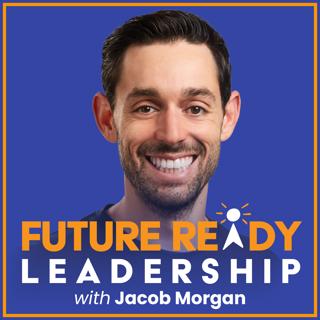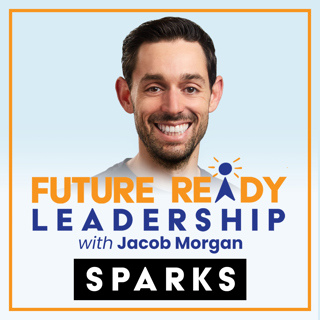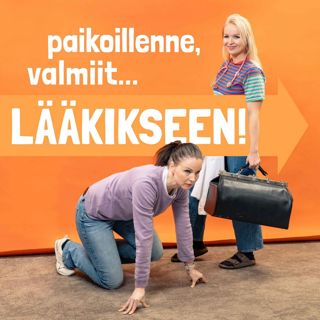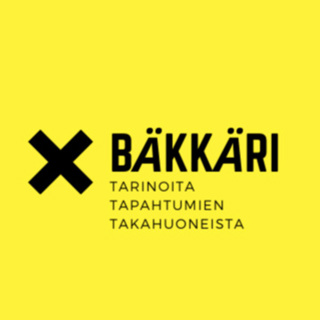
What Leaders Must Know About AI Workplaces and Timeless Human Skills
The future of work is unfolding faster than anyone expected, and leaders are scrambling to keep up. In this special Best of the Quarter episode, we revisit two standout conversations that tackle the future of work from very different, yet complementary angles. Charlotte Eaton, Chief People Officer at Arm, shares how the company is rolling out AI tools to thousands of employees, the cultural shifts required to keep pace with rapid technological change, and the risks of outsourcing human thinking to machines. Joe Hart, President and CEO of Dale Carnegie, explores why timeless human skills like empathy, trust, and confidence are more vital than ever, especially as younger generations enter the workforce and AI reshapes how we work. Together, these episodes reveal that the future of work isn’t about choosing between people or technology—it’s about how leaders bring both together. ________________ Start your day with the world’s top leaders by joining thousands of others at Great Leadership on Substack. Just enter your email: https://greatleadership.substack.com/
29 Syys 51min

Sparks: Bad Leaders Can Be Hazardous to Your Health: Why (And How) Great Leadership Matters in the Future of Work
Bad leadership doesn’t just hurt engagement. It can literally hurt people. Studies show that working under a poor leader is one of the leading causes of stress, contributing to health issues like cardiovascular disease. On the other hand, great leaders don’t just make work enjoyable. They shape culture, values, and even society itself. In today’s Leadership Spark, I explore why leadership matters more than ever and what it will take to be a leader in the future. I share insights from my extensive research, including interviews with 140 CEOs from some of the world’s biggest organizations and a global LinkedIn study with nearly 14,000 employees. Together, these conversations reveal how leadership is being redefined in the face of AI, globalization, and the changing expectations of employees, and why every leader needs to rethink their role as a lighthouse for the future. ________________ Start your day with the world’s top leaders by joining thousands of others at Great Leadership on Substack. Just enter your email: https://greatleadership.substack.com/
26 Syys 10min

Marriott’s CHRO on Tech, Humanity, and Building a Future-Ready Workforce
What does it take to lead 800,000 employees across nearly 10,000 hotels into the future of work? In this episode of Future Ready Leadership, I speak with Ty Breland, CHRO of Marriott International, about how the company is building a workforce strategy that is tech-enabled but human-centered. Ty explains why technology should automate tasks but create more space for authentic human connection, how Marriott is using AI and workforce analytics to inform smarter decisions, and why wellbeing must now include financial and mental resilience alongside physical health. We also explore why leaders need to shift from annual surveys to real-time listening if they want employees to feel genuinely heard, how Marriott develops leaders from the frontline to the executive suite, and why Ty reframes change management as “change acceleration,” built on alignment, healthy debate, and agility. ________________ Start your day with the world’s top leaders by joining thousands of others at Great Leadership on Substack. Just enter your email: https://greatleadership.substack.com/
22 Syys 56min

Sparks: Make Work More Human: Breaking Assumptions About Work and How Employee Experience Can Make or Break Your Workforce
Work is supposed to be human, but too often it feels like the opposite. For decades, we’ve built organizations on outdated assumptions: managers as “slave drivers,” employees as “cogs,” and work itself as “drudgery.” No wonder so many people feel disconnected. In today’s Leadership Spark, I break down what employee experience really means and why it’s the foundation of the future of work. We start by unpacking the basic concept of “experience” itself, how it shapes our memories, and why those memories define the relationships employees want, or don’t want, to have with their organizations. From there, we explore the flawed assumptions we’ve built work on, and what it takes to shift from a model of utility, where people need to work, to one of experience, where people want to show up. The future of work isn’t about cake, ping-pong tables, or corporate slogans. It’s about designing organizations where humanity comes first. ________________ Start your day with the world’s top leaders by joining thousands of others at Great Leadership on Substack. Just enter your email: https://greatleadership.substack.com/
19 Syys 10min

Patrick Lencioni Shares What Separates Great Leaders From the Rest
Leadership may come with titles, pay, and freedom, but it also demands sacrifice, and too often, leaders forget this truth. When they do, organizations slip into coddling cultures, unclear values, and employees unprepared for the realities of work. In this episode, Patrick Lencioni, CEO of The Table Group and bestselling author of The Five Dysfunctions of a Team and Working Genius, breaks down what leadership really requires and why so many organizations get it wrong. We explore why true leadership is rooted in service, clarity, and accountability, not perks or comfort, and caution against the dangers of companies trying to be “everything to everyone.” We also explore the balance between inclusion and responsibility, the widespread misuse of psychological safety, and how overemphasizing well-being can unintentionally weaken resilience. This conversation is a reminder that leaders must be brutally clear about values, hire for humility, hunger, and smarts, and embrace discomfort as the foundation for growth and long-term success. ________________ Start your day with the world’s top leaders by joining thousands of others at Great Leadership on Substack. Just enter your email: https://greatleadership.substack.com/
15 Syys 53min

Sparks: 8 Attributes You Need to Be a Vulnerable Leader (According to Over 100 CEOs)
What makes vulnerability in leadership powerful, but also dangerous? Leaders often confuse vulnerability with simply admitting mistakes or showing emotions. But without the right foundation, being “open” can backfire, leaving you looking weak or incompetent instead of inspiring trust. In today’s Leadership Spark, the spotlight is on the eight attributes of vulnerable leaders, distilled from my conversations with over 100 global CEOs. The discussion reveals that vulnerability on its own isn’t enough. It has to be paired with strong leadership qualities. We’ll unpack the three crucial attributes leaders need, such as competence, self-confidence, and motivation. You’ll hear real-world stories from failed $150M bets to CEOs battling panic attacks that show how uncomfortable but necessary vulnerability is. ________________ Start your day with the world’s top leaders by joining thousands of others at Great Leadership on Substack. Just enter your email: https://greatleadership.substack.com/
12 Syys 14min

What Mercer’s CEO Reveals About Work Ethic, Cultural Trends, and the Future of Work
What does it really take to reach the top of an organization? Beyond the glossy titles and corner offices lies a culture of sacrifice, long hours, and relentless client demands that shape modern leadership. In this episode, we sit down with Pat Tomlinson, CEO of Mercer, to explore the realities of work culture, the growing “996” trend of long hours, and the sacrifices it takes to rise to senior leadership. Pat shares candid reflections on his own work ethic and why hard work, visibility, and flexibility remain cornerstones for career growth, particularly in professional services. From there, the conversation expands into major workplace shifts—declining birth rates, longevity risk, and the mounting pressures on healthcare and retirement systems. We also discuss the war for talent, the evolving role of employee experience and wellness programs, and the balance between organizational support and individual accountability. Finally, we explore AI’s impact on work, why productivity gains require redesigning jobs rather than bolting on technology, and the cultural challenges leaders face in adopting these tools. ________________ Start your day with the world’s top leaders by joining thousands of others at Great Leadership on Substack. Just enter your email: https://greatleadership.substack.com/
8 Syys 57min

Sparks: Humans, Not Tools: How Employee Experience Can Unlock Engagement and Bring Humanity Back to the Workplace
We often talk about employee engagement, but before that comes something deeper: experience itself. Just like we invest our own time and money into personal experiences that create lasting memories, employees evaluate their organizations through the experiences they have at work. The problem? For over a century, companies have designed work as if humans were robots—linear, rigid, process-driven, and void of humanity. From definitions of “manager” as “slave driver” to “employee” as “cog,” the very language of work reveals how broken the system has been. But times have changed. In today's Leadership Spark, we'll unpack the true meaning of experience at work and why it’s become the defining factor of the future workplace. If organizations want to attract, retain, and inspire talent, they must redesign around humanity, not utility. This episode explores why experience is the missing link between engagement and performance, and how leaders can bring humanity back to work. ________________ Start your day with the world’s top leaders by joining thousands of others at Great Leadership on Substack. Just enter your email: https://greatleadership.substack.com/
5 Syys 9min






















